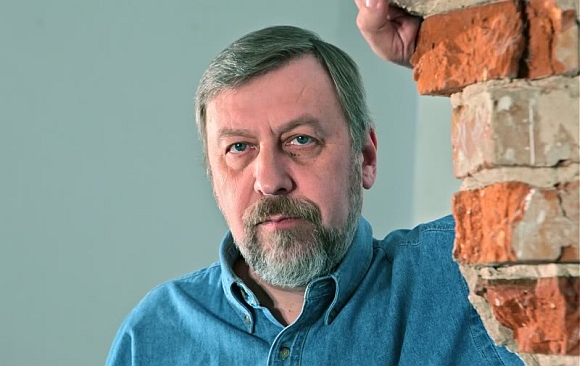
Toppling the Fellow Sufferers
Publication: Eurasia Daily Monitor Volume: 10 Issue: 98
By:

All too often, the more significant pieces of news from Belarus are not the ones that are discussed most frequently and voluminously. The second half of May has been no exception. For example, on May 18, the official news agency Belta briefly reported on an issue that appears important: The government of Belarus and the Russian natural gas monopoly Gazprom signed an agreement about converting Belarus’s public transportation vehicle fleet from running on diesel to natural gas. Gazprom promised that during the upcoming ten years, the price of gas supplied to Belarus will not exceed 50 percent of the diesel fuel price. Reportedly switching just 20 percent of Belarus’s public transport to natural gas would save $175 million. Initially all the equipment required to convert Belarus’s public transit vehicles to natural gas will be supplied by Russia, but later this equipment will be produced domestically, in the city of Novogrudok (https://www.belta.by/ru/all_news/economics/Pravitelstvo-Belarusi-i-Gazprom-gazifitsirujut-obschestvennyj-i-kommunalnyj-transport-strany_i_634903.html).
Another arguably significant piece of news is that the privatization requirement has been dropped from the list of conditions under which the anti-crisis fund of the Russian-dominated Eurasian Economic Community (EurAsEC) is issuing its loans to Belarus. Instead, further loans to Belarus are now contingent upon the creation of joint ventures between five major Belarusian production units and their Russian counterparts (see EDM, March 21). Earlier this year, the ample duty-free oil exports to Belarus from Russia (5.75 million tons per quarter) were officially made contingent on the progress of the aforementioned corporate integration projects. Now, the EurAsEC loans to Belarus will be tied to that same condition (https://nmnby.eu/news/analytics/5177.html). So far, President Alyaksandr Lukashenka has been making every attempt to derail the creation of joint ventures with Russian firms, even calling them bandit takeovers at one point (see EDM, April 23). It remains to be seen how long his delaying tactics will work.
The third significant piece of news is that from January to March 2013, foreign direct investments (FDI) to Belarus amounted to $1.14 billion. This is already half of what was planned for 2013 and only a bit less that the total inflow of FDI throughout the entire year of 2012 ($1.38 billion). The source of much of this new FDI is a reinvestment of the profits of foreign commercial entities working in Belarus. Russia accounts for 51.9 percent of FDI in Belarus during the first quarter of 2013, and the United Kingdom for 25.7 percent (https://belstat.gov.by/homep/ru/indicators/pressrel/finvestment.php). At the same time, in April, Belarus had lower inflation (0.5 percent) than in any month over the course of the last two years (https://naviny.by/rubrics/politic/2013/05/12/ic_articles_112_181740/).
All the above issues were assigned very brief commentaries. Much more numerous and wordier accounts were devoted to different events. For example, the continuation of the feuds within the Belarusian opposition, which collectively commands the support of about one-eighth of Belarusians (see EDM, April 23) and possibly even less, received ample reporting. On May 20, three opposition groups, the Belarusian Popular Front, headed by Aliaksei Yanukevich; the movement “For Liberty,” chaired by Aliaksandr Milinkevich; and the civil campaign “Speak the Truth,” chaired by Uladzimer Neklyaev, declared that they would coordinate their activities related to local (2014), presidential (2015), and parliamentary (2016) elections. With this in mind, the three leaders initiated a broad debate to determine the issues that Belarusian society is most concerned about. Once such issues are established, the aforementioned politicians will campaign for a national referendum on them (https://telegraf.by/2013/05/oppoziciya-nachinaet-podgotovku-k-narodnomu-referendumu). However, the joint decision was harshly repudiated by the other figures in the opposition—notably by Andrei Sannikau, now a political émigré in the UK. According to Sannikau, the initiative of the troika has to be attributed to European lobbyists of President Lukashenka on the eve of the EURONEST parliamentary assembly meeting in Brussels (see EDM, May 16). The alleged lobbyists, Sannikau argued, want to create the appearance of some political activity among the opposition that would distract the Western policymakers’ attention from the principal issues, like the very existence of the Lukashenka regime. Also, he added, announcing political initiatives in conjunction with elections creates the impression that elections do exist in Belarus, when in fact they do not (www.belaruspartisan.org/politic/233098/).
Sannikau’s allegations of shadowy Lukashenka lobbyists may be a double-edged sword. Whether or not such lobbyists exist, it has been clear for some time that the Western sponsors of the Belarusian opposition contribute to its deep divisions and feuds simply because various opposition groups compete with each other over Western funding sources. Sannikau’s repudiation of the fairly innocuous initiative of his actual comrades-in-arms is just a symptom of this morbid situation. Yury Drakakhrust of the Belarusian Service of Radio Liberty recalls that Sannikau’s own information resource, Charter97, was initially launched as a campaign to receive Belarusians’ signatures under some kind of political appeal. The content of that appeal is not really important. What is important is the opposition’s attempt to boost the political mobilization of generally apathetic Belarusians, and in this regard, the initiative by the troika hardly deserves a stern refutation. Drakakhrust thinks that Sannikau’s demarche may have been undertaken to clear the way for a potential resolution by EURONEST to censure the dictatorship in Belarus—the kind of a resolution that had previously been rejected at the September 2011 summit of the European Union’s Eastern Partnership in Warsaw (see EDM, October 14, 2011).
A joke told by Drakakhrust in conjunction with Sannikau’s demarche captures it all. On a tour of hell, some visitors see giant pots with Americans, Germans and others ethnicities being boiled inside of them. And every pot except one is guarded by devils. The visitors ask the guide why this particular pot wherein Belarusians are being cooked is without a guard. That’s because, explains the guide, if anybody attempts to get out of this pot, his own fellow sufferers themselves will pull him back down (https://www.svaboda.org/content/article/24992545.html).




